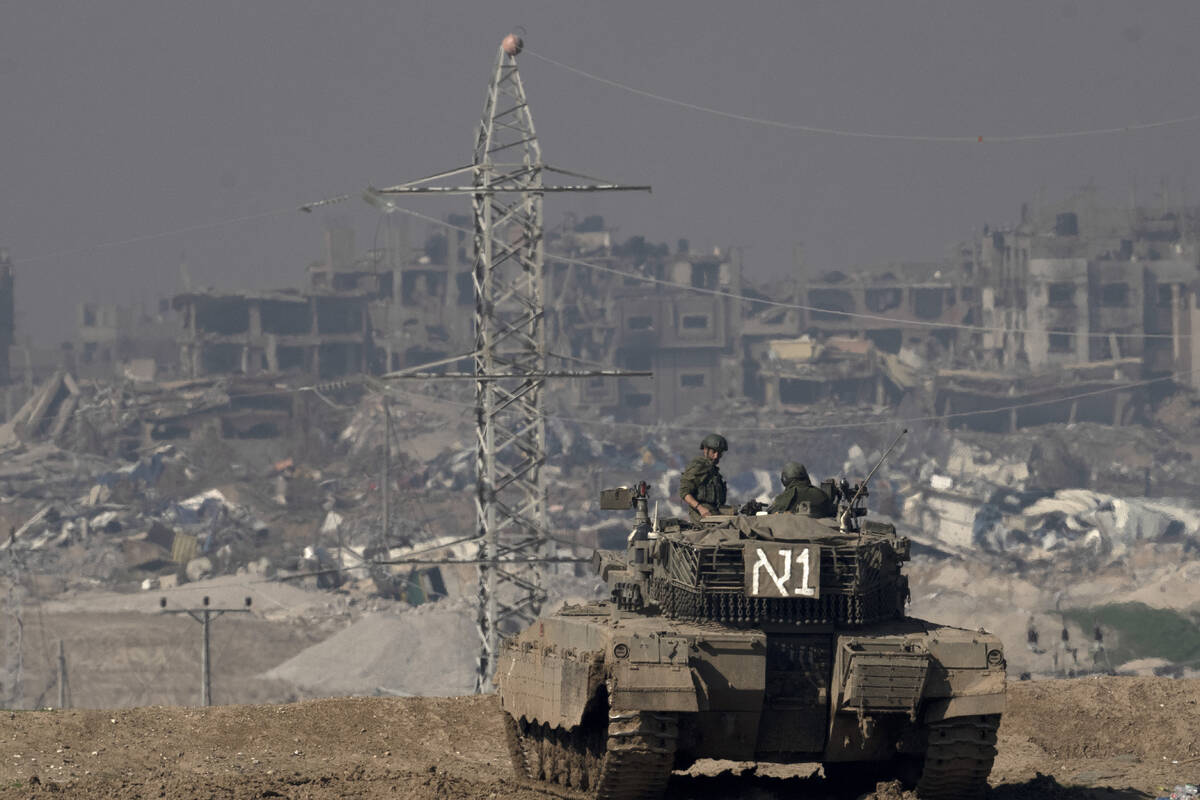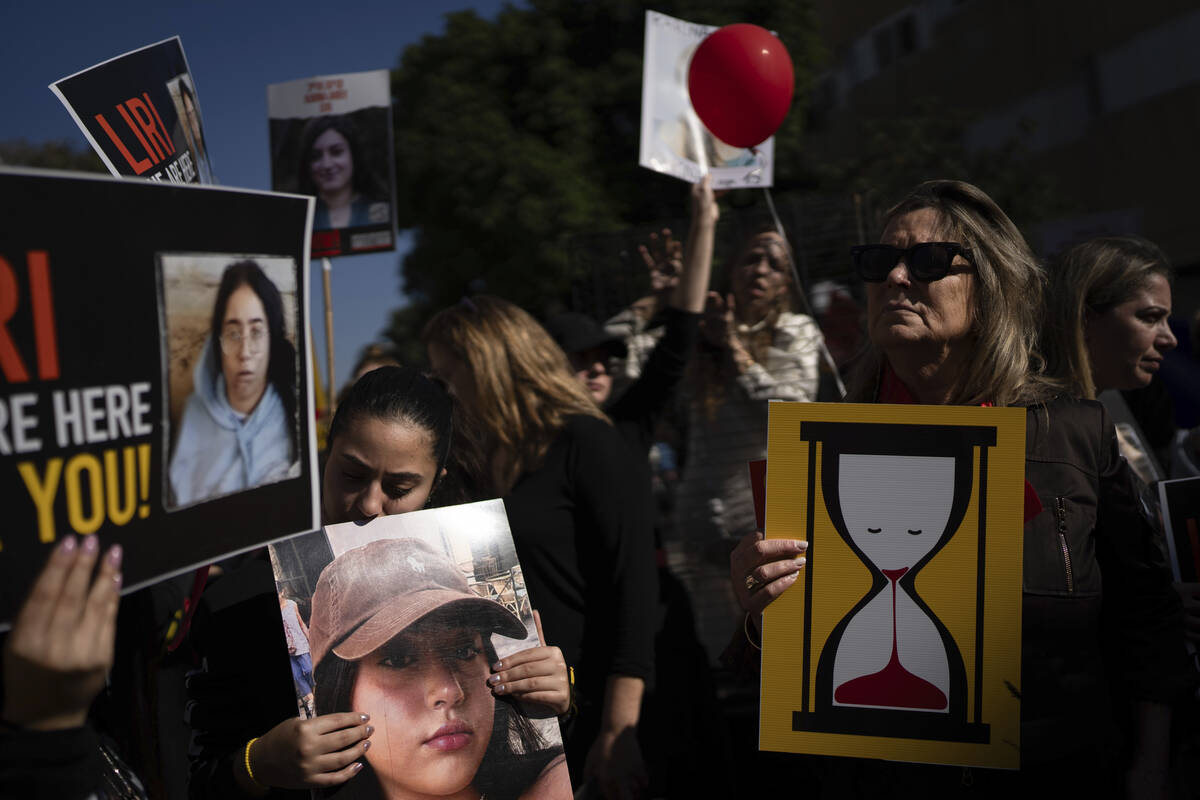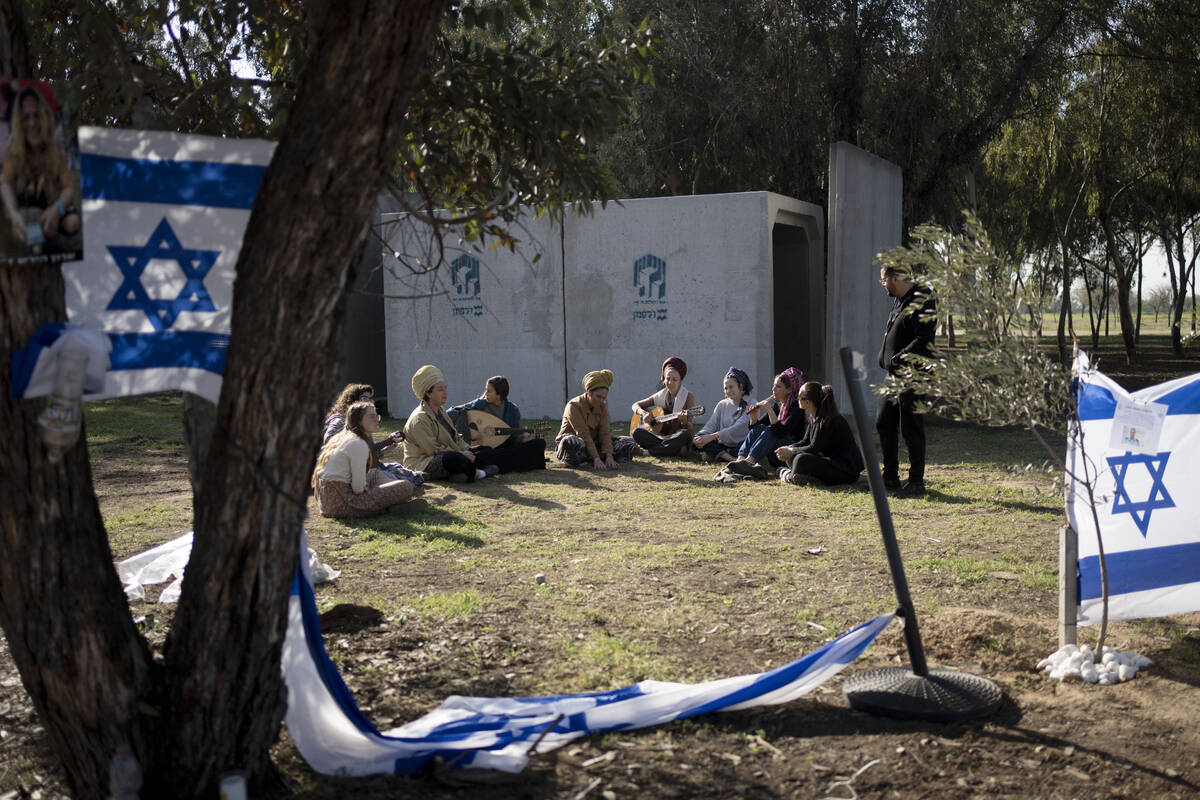Rifts emerge among top Israeli officials over handling war against Hamas in Gaza
JERUSALEM — A member of Israel’s War Cabinet cast doubt on the country’s strategy for releasing hostages held by Hamas terrorists, saying only a cease-fire can free them, as the prime minister rejected the United States’ calls to scale back its offensive.
The comments by Gadi Eisenkot, a former army chief, marked the latest sign of disagreement among top Israeli officials over the direction of the war against Hamas terrorists, now in its fourth month.
In his first public statements on the course of the war, Eisenkot said that claims the dozens of hostages could be freed by means other than a cease-fire amounted to spreading “illusions” — an implicit criticism of Prime Minister Benjamin Netanyahu, who heads the five-member War Cabinet and who insists that pursuing the war will win their release.
Eisenkot’s statements came as some relatives of hostages have intensified their protests, a sign of mounting frustration over the government’s seeming lack of progress toward a deal to release the remaining captives.
Eli Shtivi, whose 28-year-old son Idan has been held in Gaza since he was kidnapped by Hamas terrorists from the open-air Tribe of Nova music festival on Oct. 7., began a hunger strike Friday night outside Netanyahu’s private residence in the coastal town of Caesarea. Shtivi pledged to eat only a quarter of a pita a day — the reported daily meal of the hostages — until the prime minister agrees to meet with him. Dozens of people joined him for what organizers said was an overnight protest.
The day before, Israeli police scuffled with protesters who blocked a major highway in Tel Aviv to call for an immediate deal to release the hostages. Police detained seven protesters overnight, according to Israeli media.
Meanwhile, communications began to gradually return in Gaza after a nearly eight-day blackout, the longest such cutoff since the war began.
Israel vows to crush Hamas after its unprecedented Oct. 7 terrorist attack in southern Israel. In the attack, about 1,200 people, mostly civilians, were killed and 250 others taken hostage. Israel has said more than 130 hostages remain in Gaza, but not all of them are believed to be alive.
Israel’s offensive has killed nearly 25,000 Palestinians, according to the Hamas-run Health Ministry in Gaza.
Defense Minister Yoav Gallant has said troops disabled the Hamas command structure in northern Gaza, from which significant numbers of troops were withdrawn earlier in the week, and that the focus is now on the southern half of the territory.
But Eisenkot also dismissed suggestions that the military has delivered a decisive blow against Hamas.
“We haven’t yet reached a strategic achievement, or rather only partially,” Eisenkot said. “We did not bring down Hamas.”
The terrorist group has continued to launch rockets into Israel.
In his interview, Eisenkot also confirmed that a pre-emptive strike against Lebanon’s Hezbollah militia was called off at the last minute during the early days of the war. He said he was among those arguing against such a strike in an Oct. 11 Cabinet meeting that he said left him hoarse from shouting.
Eisenkot said he examines every day whether he should remain in the War Cabinet, which also includes Netanyahu, Gallant, former Defense Minister Benny Gantz and Ron Dermer, strategic affairs minister in the Netanyahu government. Eisenkot is a parliament member from the opposition National Unity alliance headed by Gantz.
“I know what my red line is,” Eisenkot said when asked at what point he would quit. “It’s connected to the hostages, that is one of the objectives, but it’s also connected to the way in which we need to run this war.”
———
Jobain reported from Rafah, Gaza Strip, and Mroue reported from Beirut.
























